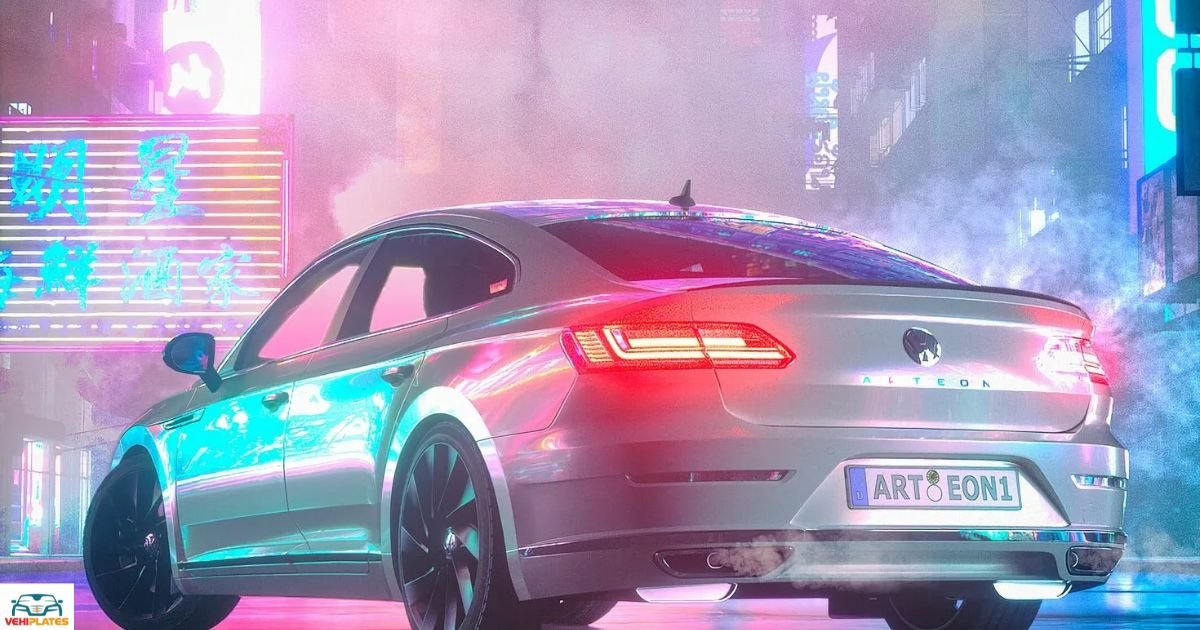In the realm of car modifications, enthusiasts often seek to personalize their vehicles through various alterations, including lighting enhancements. One common modification involves changing the color of license plate lights.
While this customization might seem innocuous, it raises questions about legality and potential safety concerns. In this article, we will delve into the legality of colored license plate lights and explore the implications of such modifications.
Legal Considerations
When it comes to modifying vehicles, it’s essential to adhere to state and local laws governing vehicle equipment. These regulations are in place to ensure road safety and maintain uniform standards for all motorists.
While laws regarding license plate lights vary by jurisdiction, there are general principles that apply across many regions.
State Regulations on License Plate Lighting
| State | Colored Light Permitted? | Specific Regulations |
| California | No | Must emit white light |
| Texas | No | White light required, no other colors permitted |
| New York | No | White light mandated |
| Florida | No | White light required by law |
| Ohio | No | Colored lights prohibited |
| Illinois | No | Must emit white light, colored lights not allowed |
| Pennsylvania | No | White light specified, colored lights prohibited |
| Michigan | No | White light required |
Federal Standards

In addition to state regulations, federal standards set by the National Highway Traffic Safety Administration (NHTSA) may also apply to vehicle modifications.
While the NHTSA primarily focuses on safety-related standards, certain lighting modifications could fall under federal jurisdiction if they impact visibility or distract other drivers.
Safety Implications
Beyond the legal considerations, altering license plate lights raises safety concerns that warrant careful examination. Colored lights, particularly those that are non-standard or excessively bright, can affect visibility and compromise the ability of other motorists to read license plates accurately. Certain colors may create confusion or distraction on the road, increasing the risk of accidents.
Visibility
The primary purpose of license plate lights is to illuminate the license plate for easy identification, especially in low-light conditions. Colored lights, particularly those outside the standard white spectrum, may not provide sufficient illumination, reducing the visibility of the license plate.
This diminished visibility can impede law enforcement efforts to identify vehicles and enforce traffic regulations.
Distraction
Bright or unconventional colored lights can attract attention and distract other drivers on the road. In a driving environment where split-second reactions are crucial, unnecessary distractions can increase the likelihood of accidents.
Colored license plate lights that draw undue attention to a vehicle may contribute to unsafe driving conditions, particularly at night or in adverse weather.
Potential Legal Consequences
Vehicle modifications that violate state or federal regulations can result in various legal consequences for motorists. While the severity of penalties may vary depending on the jurisdiction and the nature of the violation, common repercussions include fines, vehicle impoundment, and citations.
Modifications that compromise road safety, such as choosing the wrong bulb for license plate illumination, may increase the likelihood of civil liability in the event of accidents.
Fines and Citations

Law enforcement officers have the authority to issue fines and citations to motorists found in violation of vehicle equipment regulations. Depending on the jurisdiction and the specific violation, fines can range from nominal amounts to substantial penalties.
Repeat offenders may face escalating fines or more severe penalties, such as license suspension or vehicle impoundment.
Vehicle Inspections
During routine vehicle inspections or traffic stops, law enforcement officers may scrutinize modifications, including license plate lights, for compliance with regulations.
Non-compliant modifications may result in a failed inspection or additional scrutiny, potentially leading to fines or citations. Ensuring compliance with legal requirements can help motorists avoid inconvenience and penalties during inspections.
FAQ’s
Can I legally install colored license plate lights on my vehicle?
In many jurisdictions, colored license plate lights are illegal as they can impede visibility and distract other drivers.
Are there any exceptions to the legality of colored license plate lights?
Some states may allow specific colors or brightness levels within certain guidelines, but it’s crucial to check local regulations.
What are the potential consequences of using colored license plate lights?
Using colored license plate lights that violate regulations can result in fines, citations, and even vehicle impoundment.
Conclusion
While the allure of personalized vehicle modifications is understandable, it’s essential for motorists to prioritize compliance with legal and safety standards. Colored license plate lights, while seemingly harmless, can have significant legal and safety implications.
Before making any modifications to their vehicles, motorists should thoroughly research relevant regulations and consider the potential consequences.
By prioritizing safety and compliance, drivers can enjoy customization without compromising road safety or facing legal repercussions.










